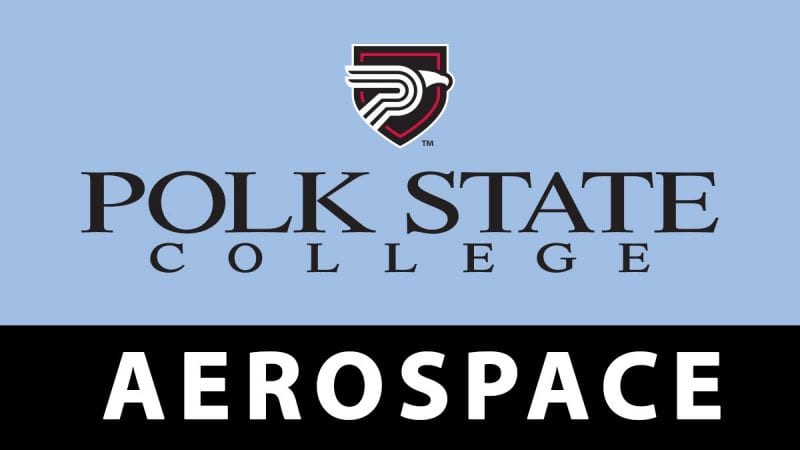Polk State Aerospace Gets Good News from FAA, and It Will Save Students Time and Money

A recent approval from the Federal Aviation Administration will save Polk State Aerospace graduates hundreds of flight-training hours — and thousands of dollars.
“What this means, essentially, is that our program is so good that people who want to fly for the airlines can come here and get a 250- to 500-hour discount,” said Polk State Aerospace Program Director Eric Crump.
“It’s a huge validation. It tells us that we have the curriculum we need to train the next generation of aviation professionals, and for students, it tells them that the academic experience they receive here has real value.”
Earlier this month, Polk State Aerospace received word that it has been authorized by the FAA to certify graduates for the Airline Transport Pilot certificate at a reduced number of flight hours. The Airline Transport Pilot, or ATP, is the highest-level certificate the FAA issues, and is required to fly for commercial airlines.
To earn the ATP, pilots must complete 1,500 hours of flight time.
However, Polk State’s FAA approval reduces that requirement significantly. Graduates of Polk State Aerospace’s Bachelor of Science in Aerospace Sciences with a concentration in Professional Pilot Science need only 1,000 hours of flight time to be eligible for the ATP. Graduates of the Associate in Science in Professional Pilot Science need only 1,250 flight hours.
Crump said, at a minimum, flight training costs $100 per hour, meaning with the FAA approval, Polk State students stand to save as much as $50,000 in their pursuit of the ATP. However, because many students accrue their flight training while working, Crump said, the savings may best be expressed in time. To complete 250 to 500 flight hours — the number of hours Polk State students will save — would take about a year and a half.
“For our students, flying is their dream job. It’s what they want to do with the rest of their lives,” Crump said. “What I’m able to tell our students now is that they can be in their dream job a year to a year and a half sooner. If they come to Polk State, they can be a year closer to doing exactly what they want to do in their careers.”
Additionally, the age requirement for the ATP is typically 23. However, the FAA authorization reduces that requirement for Polk State graduates to 21 years.
Polk State is now one of only 79 institutions in the nation with FAA authority to certify graduates for the ATP with reduced flight training.
Crump said the process to obtain the FAA authorization was intense.
“It involved a complete review of our academic curriculum to be certain that our requirements equate to 500 hours of flying an airplane,” he said.
Among the ways Polk State Aerospace stands out from other programs is its emphasis on safety. For instance, the program abides by its own Safety Management System. Airlines are required to have and practice an FAA-approved SMS, Crump said, but not educational institutions. Polk State Aerospace students also complete scenario-based training to teach them how to react in emergency situations, taking their education well past the standard “how to fly the plane straight and level” training many other institutions provide.
“We believe it’s important to expose our students to what they’re going to see when they enter the workforce. We aren’t just getting them certified to fly. We’re preparing them to be proficient aviation professionals,” Crump said.
Polk State Aerospace’s FAA approval is also being hailed by one of its closest partners, ExpressJet, one of the world’s largest regional airlines. In late 2015, Polk State became one of about 50 colleges and universities in the nation participating in ExpressJet’s Airline Pilot Pathway Program. AP3 extends numerous benefits to students, including preferential hiring benefits. Since the partnership began, ExpressJet has hired seven Polk State Aerospace students.
“Polk State pilots consistently demonstrate great skill, and I am pleased to learn that their education will now supplement a portion of their flight experience. We at ExpressJet congratulate the College on achieving the FAA R-ATP (restricted ATP, which refers to the reduced flight-time requirement) approval, and wish continued success to the graduates as they begin their careers now on an earlier —yet still solid — foundation,” said Capt. John Pittman, ground training lead with ExpressJet.
Polk State Aerospace offers the Associate in Science in Professional Pilot Science, the Associate in Science in Aerospace Administration, the Associate in Science in Aviation Maintenance Administration, and the Bachelor of Science in Aerospace Sciences, which has concentrations in both Pilot Science and Administration.

